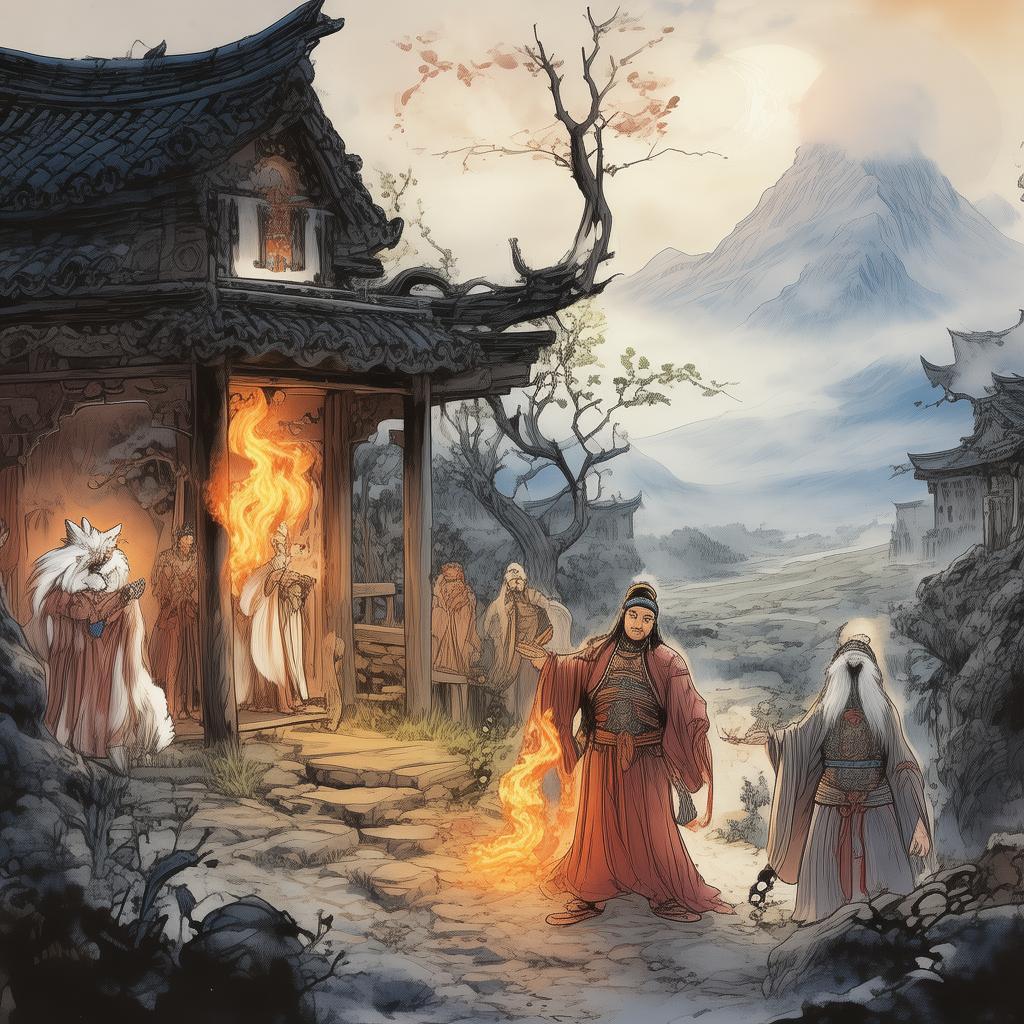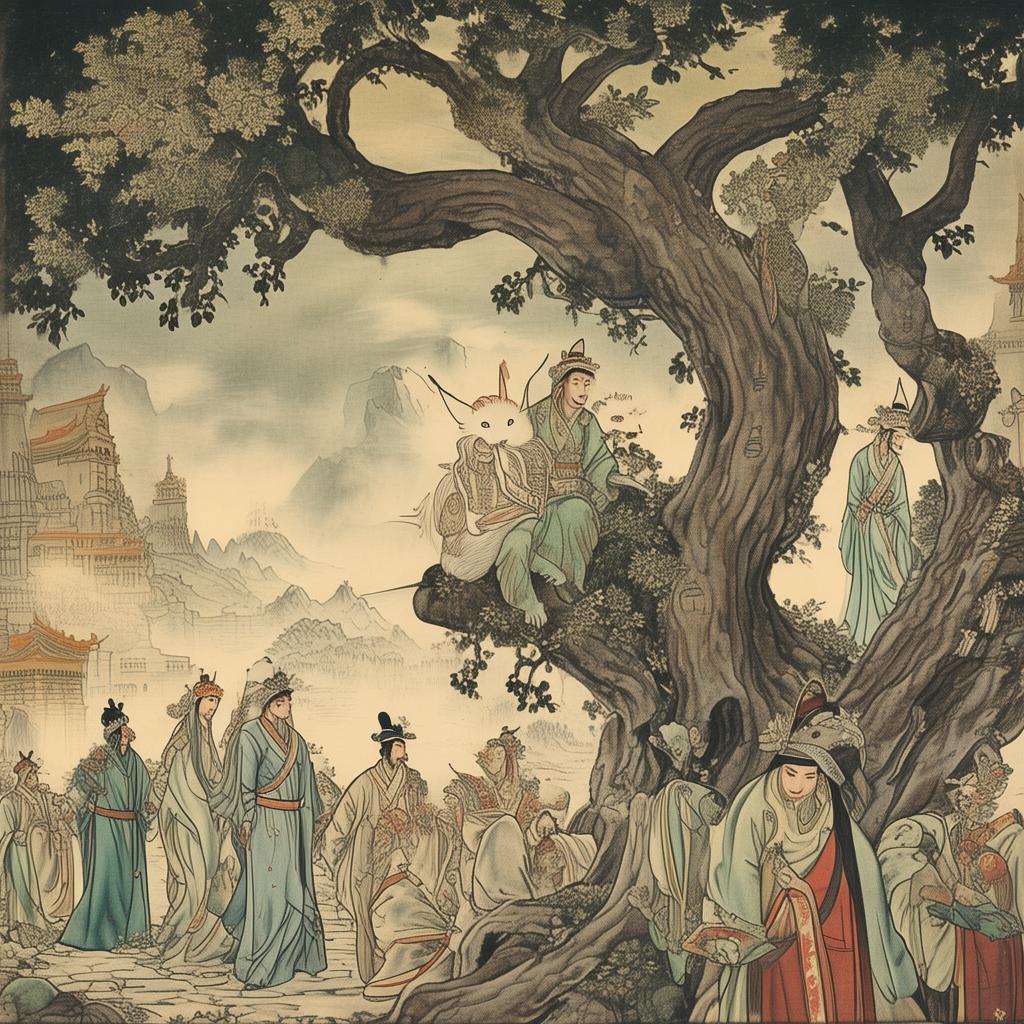The Samba Shadows of Copacabana: A Tale of Love and Haunting
In the heart of Rio de Janeiro, where the sun kisses the ocean with a golden glow, and the streets are alive with the rhythm of samba, there was a woman named Maria. Maria was a samba singer, her voice a blend of passion and sorrow that could move the very soul of the listener. She performed on the stages of Copacabana, the famous beach that was her stage and her home.
Maria's life was a tapestry woven from the threads of her past and her present. She loved the music, the people, and the city that had embraced her. But there was a shadow over her life, a haunting that followed her like a ghost from the past.
One night, as the moon hung low and the stars twinkled in the sky, Maria found herself drawn to the old, abandoned villa at the end of the beach. It was said that the villa was haunted, that the spirits of those who had lived there before still wandered the halls. Maria had always been fascinated by the villa, its history, and the stories of the hauntings.
As she approached the villa, the air grew colder, and she felt a strange presence. She pressed on, drawn by an inexplicable force. Inside, the walls were covered in dust and cobwebs, and the furniture was draped in shadows. Maria wandered through the rooms, her eyes scanning the corners for any sign of the hauntings.
Then, in the dim light of the parlor, she saw it—a portrait of a woman who looked strikingly similar to herself. Her heart raced as she approached the painting. There, in the eyes of the woman in the portrait, she saw her own reflection. The woman had a samba song etched in her memory, a song that Maria had never heard before.
Curiosity piqued, Maria began to search the villa for clues about the woman in the portrait. She found an old diary, its pages yellowed with age. As she read, the story of the woman's life unfolded before her eyes. She was a samba singer, just like Maria, who had fallen in love with a man from another world. Their love was forbidden, and he had been forced to leave her, never to return.
The diary spoke of her pain, her longing, and her eventual death. Maria realized that the woman in the portrait was her past life, her soul, trapped in the villa by the curse of unrequited love. The woman's spirit had been unable to move on, bound to the place where her love had ended.

Determined to free the spirit, Maria began to sing the song from the diary, the same song that had been sung by the woman in the portrait. As she sang, the air around her grew warmer, and the shadows began to fade. The spirit of the woman moved closer, her form becoming more solid, until she was standing before Maria.
The spirit spoke to Maria, her voice filled with gratitude. "Thank you, Maria. Your song has freed me. I will be with you always, in the music you play and the love you share."
With the spirit freed, Maria felt a sense of peace. She knew that her past life had found its release, and that she was now free to live her own life, free to love and be loved in return.
The next day, Maria returned to the stage of Copacabana, her voice stronger and more powerful than ever. She sang a new song, a song of love and freedom, a song that would resonate with all who heard it. And as she sang, the spirits of the villa watched over her, their love and gratitude forever intertwined with her own.
The Samba Shadows of Copacabana was a story of love, loss, and redemption. It was a tale that spoke to the heart of every listener, reminding them that love is eternal, and that even the spirits of the past can find peace through the power of music and the bonds of love.
✨ Original Statement ✨
All articles published on this website (including but not limited to text, images, videos, and other content) are original or authorized for reposting and are protected by relevant laws. Without the explicit written permission of this website, no individual or organization may copy, modify, repost, or use the content for commercial purposes.
If you need to quote or cooperate, please contact this site for authorization. We reserve the right to pursue legal responsibility for any unauthorized use.
Hereby declared.









